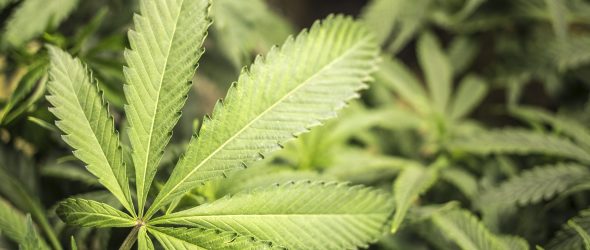 https://cannabisexaminers.com/wp-content/uploads/2020/08/635895928908893838-ThinkstockPhotos-481275298-scaled.jpg
https://cannabisexaminers.com/wp-content/uploads/2020/08/635895928908893838-ThinkstockPhotos-481275298-scaled.jpg
The self-isolation forced by the COVID-19 pandemic affects everyone differently, but for teens lethargic, yet anxiety-ridden, times can manifest in symptoms very similar to those of illegal substance use, like marijuana.
“Two of the earliest signs of marijuana use are excessive eating and diminished interest, including withdrawing from friends and family,” said Judy Baca, Unified Prevention Coalition member and certified National Mental Health First Aid Instructor. Baca is also a New Mexico Breaking the Silence Instructor, a program that works to normalize open discussion around mental health for youth, teens and adults.
“What makes recognizing the signs difficult is the signs of substance abuse in teens are similar to the outcomes of social isolation,” Baca noted.
Such similar behaviors due to social isolation and marijuana use for teens can include anxiety, low morale, irritation, excessive eating out of boredom and depression. Though similar in nature of symptoms, both should be treated seriously by families and spark conversation to assess whether youth need more support or intervention like counseling or treatment.
Though marijuana is legal for medical use in New Mexico, recreational use remains illegal. Marijuana’s psychoactive chemical, tetrahydrocannabinol affects the brain areas associated with attention, memory and learning.
The long-term effects of marijuana use in youth can cause changes to brain structure, lower quality brain connections and cause less blood flow to parts of the brain, according to the U.S. Health and Human Service Department.
For local news and commentary, subscribe to the Las Cruces Sun-News today.
“Behaviorally when teens are using illegal substances, they isolate from their family to hide what they are doing,” said Liz Palyu, director of clinical services at Peak Behavioral Health Services, a behavioral health treatment and recovery service located in Santa Teresa.
“Teens may become more paranoid or worried they will be discovered,” she said
This paranoia can manifest in several ways including irritability when questioned, aggressiveness when confronted or seeking to isolate themselves, like locking their bedroom door or denying adults entry into their personal space.
“Fatigue, sleepiness or forgetfulness are also common signs of marijuana use,” Palyu said.
Unfortunately, these same behaviors are also part of normal adolescent development or can be further exacerbated by the extended self-isolation due to the pandemic, noted Baca.
What does differ is the physical signs of marijuana use, which adults can recognize in teens. Bloodshot eyes or dilated pupils are signs of marijuana use, according to Palyu.
Also, youth might have an accompanying pungent “skunky” smell, akin to burnt oregano, which they might attempt to conceal with room deodorizer.
More worrisome signs of drug use in teens can come from the need to secure money to feed their growing habit. Palyu warns that “their prized possessions or things in the house worth selling go missing.”
“Parents or caregivers do not have to be experts in either symptom of marijuana misuse or social isolation,” said Dr. Ned Rubin, UP! Coalition Chair. “You are already experts when it comes to your child. We are working to prevent drug use by youth but we are also concerned and aware of the impact of COVID on the emotional or mental health of our children.”
If youth are showing symptoms of anxiety or depression, parents are also urged to check in with youth about the state of their mental health.
“Let the youth know you care about them and you are here for them. The most important thing to ask is if they are OK and be prepared for the process if they respond with a ‘no,’” said Baca.
Palyu recommends parents not be hostile or accusing when confronting teens.
“The family should be supportive and not punitive.”
She adds that the family should be aware of the symptoms of marijuana withdrawal and be prepared to support the youth through the process, which can take several weeks.
“Let them know you are concerned and want to help them,” said Baca. If the teen is open to seeking professional help for recovery treatment, Baca further advises parents or guardians to offer teens several options, “so they have a part in the process of choosing their treatment.”
New Mexico Crisis and Access Line offers support for both COVID-19 anxiety and substance misuse resources at 1-855-662-7474 or by visiting nmcrisisline.com, sponsored by the state’s Human Services Department.
For more information or local resources, contact UP! Coalition at 575-597-0024 or upcoalition@chi-phi.org.
This news release is made available by the Unified Prevention (UP!) Coalition for Doña Ana County, a program of the Center for Health Innovation.
More from the UP! Coalition:
Read or Share this story: https://www.lcsun-news.com/story/news/local/community/2020/08/29/teen-covid-19-anxiety-and-marijuana-misuse-have-similar-symptoms/5667561002/

